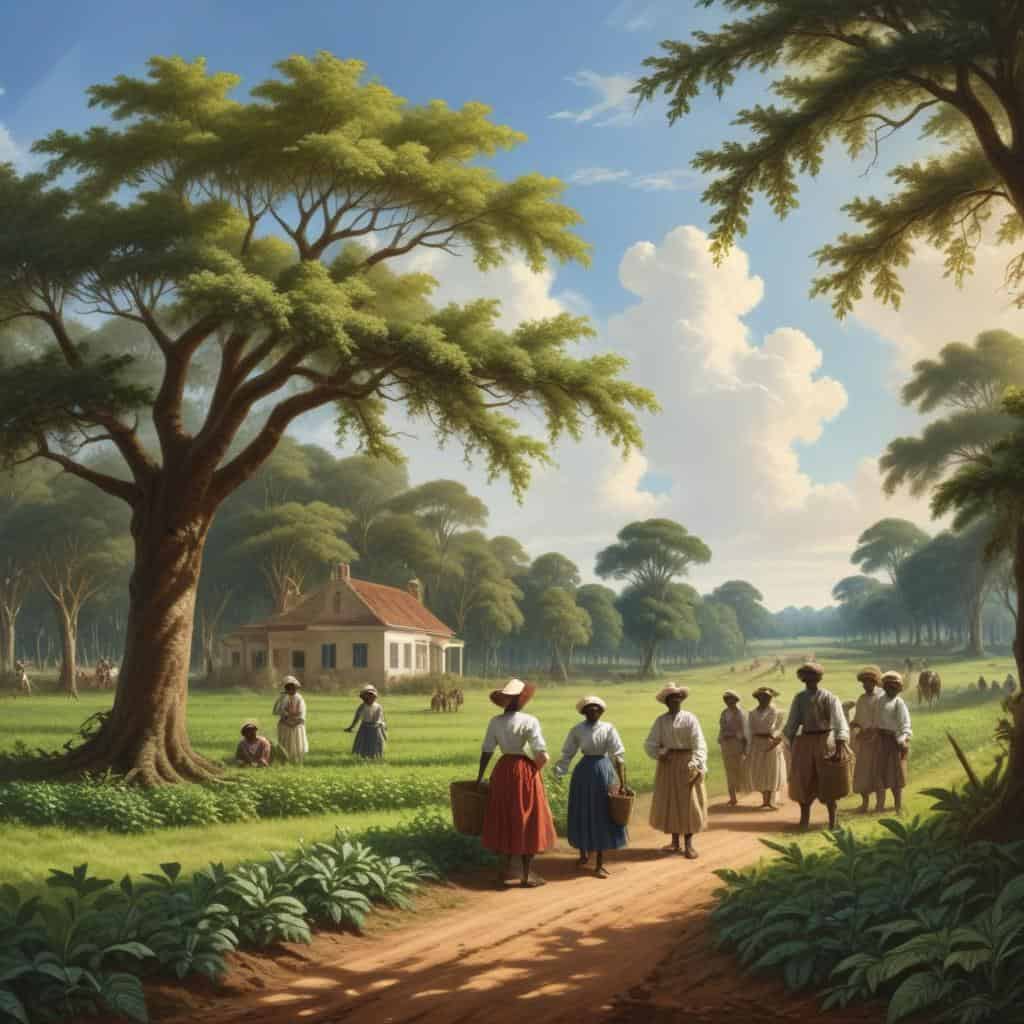European Colonialism in Africa refers to the period in history when European powers colonized and exploited African territories for economic and political gain. During this time, European countries such as Britain, France, Germany, and Belgium established colonies in Africa, leading to the exploitation of natural resources and the imposition of European culture and institutions on the indigenous populations.
European Colonialism in Africa had lasting effects on the continent, including the disruption of traditional societies, the imposition of artificial borders that continue to cause conflict to this day, and the exploitation of African labor and resources for the benefit of European powers. The legacy of European Colonialism in Africa continues to shape the political, social, and economic landscape of the continent.
Summary List
- European countries colonized Africa in the 19th and 20th centuries.
- Colonial powers exploited Africa's resources for their own benefit.
- Colonialism disrupted African societies and cultures.
- The Berlin Conference of 1884-1885 divided Africa among European powers.
- Colonialism led to the enslavement and exploitation of African people.
Games And Apps
Learning Modules for European-Colonialism-in-Africa
Scramble for Africa (1884-1885)
The Scramble for Africa was a period in the late 19th century when European powers rushed to claim territories in Africa for colonization. This competition led to the division of the continent among European nations, resulting in widespread exploitation and colonization of African resources and people.
I Want To Learn This!Berlin Conference (1884-1885)
The Berlin Conference of 1884-1885 was a pivotal meeting of European powers to divide up Africa for colonization. Led by Otto von Bismarck, the conference resulted in the carving up of the continent without regard for its indigenous peoples, setting the stage for decades of exploitation and conflict.
I Want To Learn This!British annexation of Egypt (1882)
In 1882, Britain intervened in Egypt to protect its own interests and secure control over the strategic Suez Canal. The annexation brought about significant political and economic changes in Egypt, leading to increased British influence in the region and setting the stage for future conflicts.
I Want To Learn This!French conquest of Algeria (1830-1847)
The French conquest of Algeria from 1830 to 1847 marked a significant chapter in colonial history. With military force and political maneuvering, the French established control over the North African territory, ultimately leading to the establishment of a French colonial regime that would last for over a century. The conquest had lasting impacts on both Algeria and France, shaping the cultural, political, and economic landscape of the region for decades to come.
I Want To Learn This!Belgian colonization of the Congo (1885-1908)
During the late 19th century, Belgium embarked on a brutal colonization of the Congo, exploiting its resources and people for profit. King Leopold II claimed the land as his own personal property, leading to widespread atrocities and abuses. The legacy of this dark period continues to impact the region to this day.
I Want To Learn This!Portuguese colonization of Angola (1575-1975)
Portuguese colonization of Angola began in 1575 and lasted until 1975, leaving a lasting impact on the country's culture and society. The exploitation of resources, forced labor, and harsh treatment of the native population are just some of the dark chapters in Angola's history under Portuguese rule.
I Want To Learn This!German colonization of Namibia (1884-1915)
In the late 19th century, Germany established control over Namibia, then known as German South-West Africa. The colonization brought about brutal repression and exploitation of the local population, leading to widespread resistance and ultimately culminating in the Herero and Namaqua genocide. This dark chapter in history continues to impact Namibia today.
I Want To Learn This!Italian colonization of Libya (1911-1947)
Italian colonization of Libya began in 1911 when Italy invaded and occupied the North African country. Over the next few decades, Italy imposed harsh colonial rule, exploiting Libya's resources and suppressing local uprisings. The colonization ended in 1947 after Libya gained independence.
I Want To Learn This!Dutch colonization of South Africa (1652-1910)
The Dutch arrived in South Africa in 1652, establishing a colony at the Cape of Good Hope. Over the next 250 years, they expanded their presence, bringing European settlers, introducing new crops, and enforcing a system of racial segregation that would have lasting impacts on the country's history.
I Want To Learn This!Spanish colonization of Equatorial Guinea (1478-1968)
The Spanish colonization of Equatorial Guinea began in 1478 and lasted until 1968, when the country gained independence. During this time, the Spanish imposed their language, culture, and political system on the region, leading to lasting effects on the country's development and identity.
I Want To Learn This!French colonization of Tunisia (1881-1956)
Experience the tumultuous history of French colonization in Tunisia from 1881 to 1956. Witness the clash of cultures, the struggle for independence, and the lasting impact of colonial rule on this North African nation. Explore the complexities of power, resistance, and identity in this captivating historical narrative.
I Want To Learn This!British colonization of Sudan (1898-1956)
The British colonization of Sudan from 1898 to 1956 was marked by political turmoil, economic exploitation, and cultural upheaval. With the imposition of colonial rule, the indigenous people of Sudan faced oppression, resistance, and ultimately the struggle for independence. The legacy of British colonization continues to shape Sudan's history and identity today.
I Want To Learn This!Portuguese colonization of Mozambique (1498-1975)
Portuguese colonization of Mozambique began in 1498 when Vasco da Gama landed on its shores. Over the next four centuries, Portugal established a brutal colonial rule, exploiting the country's resources and people. Independence was finally achieved in 1975 after a long and bloody struggle for freedom.
I Want To Learn This!German colonization of Togo (1884-1919)
During the late 19th and early 20th centuries, Germany established a colony in Togo, a small West African nation. The German colonization of Togo brought significant changes to the region, including the imposition of harsh labor practices and the suppression of local cultures.
I Want To Learn This!Belgian colonization of Rwanda and Burundi (1916-1962)
The Belgian colonization of Rwanda and Burundi from 1916 to 1962 had lasting impacts on the region, introducing a system of divide and rule that exacerbated ethnic tensions between the Hutu and Tutsi populations. The legacy of Belgian rule continues to shape the political landscape of these countries today.
I Want To Learn This!French colonization of Senegal (1659-1960)
From the establishment of Saint-Louis in 1659 to Senegal's independence in 1960, French colonization had a lasting impact on the country. The exploitation of resources, introduction of Western culture, and imposition of colonial rule shaped Senegal's history and continues to influence its society today.
I Want To Learn This!British colonization of Kenya (1885-1963)
In 1885, British colonization of Kenya began, reshaping the East African country for nearly eight decades. The British exploited Kenya's resources, imposed their laws, and implemented a system of segregation which fueled tensions leading to the Mau Mau uprising in the 1950s, ultimately leading to Kenya's independence in 1963.
I Want To Learn This!Spanish colonization of Western Sahara (1884-1975)
The Spanish colonization of Western Sahara began in 1884 and lasted until 1975. This period marked a tumultuous chapter in the region's history, characterized by conflict, exploitation, and resistance. The legacy of Spanish rule continues to impact the socio-political landscape of Western Sahara to this day.
I Want To Learn This!Italian colonization of Eritrea (1885-1941)
Italian colonization of Eritrea began in 1885 and lasted until 1941. During this time, Italy imposed its rule over the East African nation, bringing infrastructure and modernization but also facing resistance and uprisings from the local population. The legacy of Italian colonization still impacts Eritrea today.
I Want To Learn This!Portuguese colonization of Cape Verde (1462-1975)
Portuguese colonization of Cape Verde began in 1462, when the islands were discovered by Portuguese explorers. Over the next four centuries, the Portuguese established a thriving trade hub and introduced their language, religion, and culture to the native population. The colonization lasted until Cape Verde gained independence in 1975.
I Want To Learn This!












